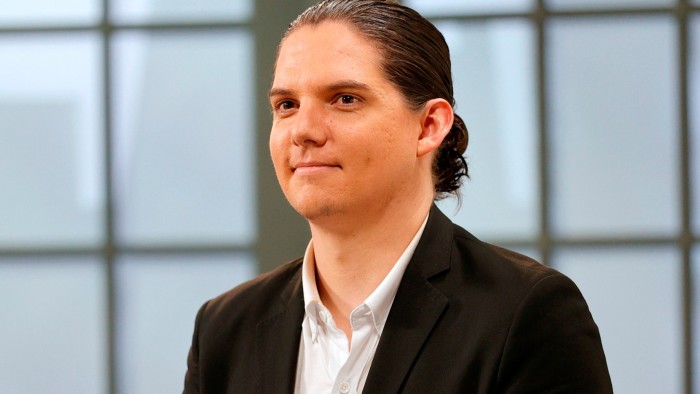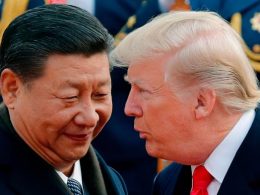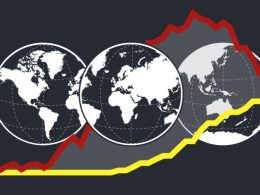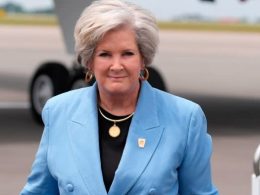US companies are accelerating their retreat from diversity and inclusion initiatives amid an all-out assault from conservatives emboldened by the election of Donald Trump.
The pullback includes Walmart’s decision to end some of its diversity, equity and inclusion initiatives last week, and Boeing’s move to disband its DEI department earlier this month. And on Thursday, a US judge in northern Texas rejected a plea deal federal prosecutors had reached with Boeing tied to two fatal crashes of the 737 Max, objecting to justice department guidelines to consider diversity in selecting a monitor to ensure corporate compliance.
These corporate rollbacks were “the beginning of the cataclysmic shift on DEI” that would accelerate once Trump takes office next year, said Michael Delikat, a partner at law firm Orrick and co-founder of its DEI task force.
The scale of the pullback is an abrupt reversal from policies that just a few years ago appeared poised to deeply influence diversity in corporate America, and appeared ascendant with the election of a Democratic president just a few years ago.
Even before November’s election, companies were auditing their DEI programmes for potential legal risks, Delikat said. The US Supreme Court will be hearing another employment discrimination case — Ames vs Ohio — in February, and the outcome was likely to heap more DEI problems on companies, he said.
Though conservatives have long pressured companies to drop the diversity efforts adopted after the murder of George Floyd by a Minneapolis police officer in 2020, the Supreme Court’s 2023 affirmative action ruling spurred some companies to revisit their policies, said Cynthia Soledad, global head of DEI at management consultancy Egon Zehnder.
DEI has been blamed as a “bogeyman” for a variety of corporate and government failures, said Y-Vonne Hutchinson, the chief executive of DEI consultancy ReadySet. Conservatives held DEI liable for the 2023 failure of Silicon Valley Bank, the March collapse of Baltimore’s Francis Scott Key Bridge, the CrowdStrike-related IT outages that caused mass flight cancellations in July, in addition to Secret Service oversights during assassination attempts on Trump.
Robby Starbuck, a filmmaker turned conservative activist who has taken credit for DEI reversals at a handful of companies, said Trump’s return to the White House would only make it easier to get companies to drop the “toxic” programmes.
In addition to exerting political pressure on companies, Starbuck said he had strategised with the incoming Trump administration to identify “a number of levers of power” they can pull to limit diversity requirements, including adding clauses barring them from implementing DEI initiatives if they have government contracts.
DEI programmes expose companies to reverse discrimination cases and pose “a very significant legal risk for corporations”, Delikat said.
In rolling back their DEI and environmental, social and governance efforts, diversity consultants say executives see themselves as falling into line with a broader shift towards conservative values in American public life after the presidential election.
Several companies have deprioritised diversity on their corporate boards. The number of new directors classified as people of colour who were appointed to S&P 500 boards dropped to 24 per cent in 2024, down from 34 per cent in 2022, according to a December 5 report from Egon Zehnder.
This week, investment firm Azoria Partners said it would launch an “anti-woke” exchange-traded fund by singling out companies with DEI programmes, including coffee chain Starbucks’ 2023 goal to make 30 per cent of its corporate employees racial minorities. (The company said that the targets had “expired.”)
Last week, Walmart changed policies to stop considering race and gender when granting supplier contracts, cease training staff on racial equity and tighten its restrictions on LGBT+ themed products in its marketplace for third-party sellers.
Earlier, Ford, Lowe’s, Caterpillar, Toyota and Harley-Davidson had all said that they would drop some of their DEI vows. Some will withdraw from the Human Rights Campaign’s high-profile workplace rankings, while others will drop diversity targets for its suppliers.
In finance, BlackRock supported just 5 per cent of so-called social shareholder proposals such as diversity issues during the 12 months ending in June, the asset manager said earlier this year, compared with 35 per cent in 2021. The company has been targeted frequently by conservatives over sustainable investing initiatives.
Still, two-thirds of the 30 companies in the Dow Jones Industrial index continue to publish information about their diversity programmes online, ranging from Cisco to Merck and Visa.
David Thomas, the president of the Atlanta historically Black men’s college Morehouse, said none of its corporate partners including Google, Blackstone and JPMorgan Chase have backed out of commitments to provide internship and mentoring opportunities for students.
Avi Skoff, co-chair of the employment practice at law firm Moses Singer, said: “I do not think that we will wake up [the day after the inauguration] and the world of DEI will be over. I think that things that were put in place end up having their own momentum until there is a landmark decision which changes things.”
But opponents of the efforts see momentum going their way.
“You’re going to see the market over the [next] year reward the companies who do the right thing, and punish the companies who continue to hold on to every part of this crazy ideology,” Starbuck said.
Source link








